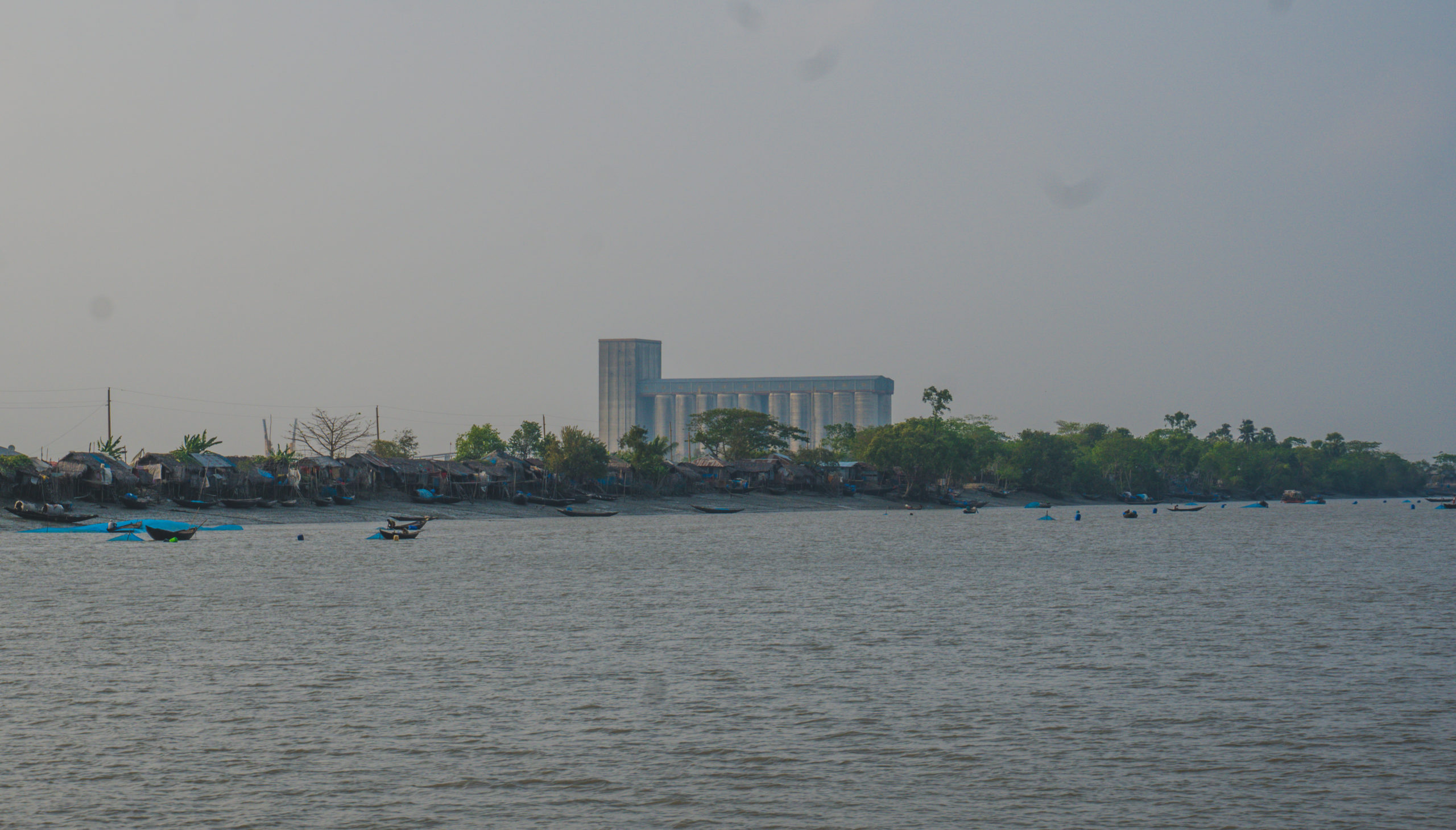Mongla is a port city in the Bagerhat District of the Khulna Region of Bangladesh, located along the Pashur River and about 100 km (62 miles) north of the Bay of Bengal. It is the main launch point for your journey into the Sundarbans Reserve Forest. Notable for hosting the second largest seaport in Bangladesh established in 1951, Mongla has become an integral part of the country’s growth and is famous for shrimp farming. Crabs, frozen fish, and shrimp include the chief export commodities of Mongla port.
Located across the river from the Sundarbans Reserved Forest, Mongla provides easy access to the Karamjal Ecotourism Center and other tourist destinations in the Sundarbans including Harbaria, Katka, Kochikhali, and Hiron Point. The Karamjal Forest Station is a starting point for the Sundarbans and is only a short boat ride away from Mongla. Karamjal features a wildlife breeding center and raised walking trails that are perfect for wildlife viewing, notably tigers and crocodiles. Further south from Karamjal, Hiron Point is a protected wildlife sanctuary known for its sightings of endangered species and a large variety of mangroves.
Mongla is also known for its long-term sustainability efforts and emphasis on climate resilience as the safe haven for thousands of climate migrants. Most of the city’s population of 150,000 are climate refugees who have lost their previous homes due to rapidly rising climate issues such as river erosion. Through its implementation of modern infrastructures, such as flood-control gates and freshwater treatment plans, Mongla has become a model of sustainable development.
The Bangladesh Ecotourism and Conservation Alliance (BECA) is currently working in Mongla to integrate the region and its tour products and offerings into Greater Sundarbans Destination Management Organization. We are actively building alliances with tour operators, accommodation providers, guides, civil society, and other industry stakeholders in this region. In Mongla, BECA will facilitate investment to develop a Cultural Park and conduct tour guide training for day trip operators to improve their performance and services. We are also working to improve visitor management facilities and information-providing services in this area since a great number of local and international tourists set their journey from here. BECA in collaboration with local NGOs will develop and promote SAVE (Scientific, Academic, Volunteer, and Educational) tourism in the nearby villages of Mongla much closer to the Sundarbans. BECA wants to use local expertise and support to upgrade Sundarbans to an international-level tourism destination and catalyze an inclusive growth of this region benefiting both community and conservation.



